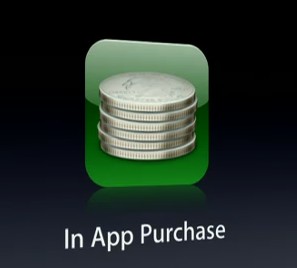 If it wasn’t already clear who owns the customer – Apple or its mobile carrier partners – yesterday’s announcement that ‘In App’ purchases will be a prominent feature of the next version of the iPhone’s OS suggests, once again, that power resides very much with Steve Jobs and co. in Cupertino.
If it wasn’t already clear who owns the customer – Apple or its mobile carrier partners – yesterday’s announcement that ‘In App’ purchases will be a prominent feature of the next version of the iPhone’s OS suggests, once again, that power resides very much with Steve Jobs and co. in Cupertino.
When iPhone OS 3.0 is rolled out this summer, developers will be able to charge for additional content within their applications – so that, for example, an iPhone game could at anytime prompt a player to purchase additional levels or other in-game content, such as maps, without the user having to leave the app and billed through their existing iTunes account. For the privilege, Apple takes its standard 30% cut, once again bypassing the carriers. That in itself is disruptive enough. However, there’s another force at play.
Micro-payments. Or more broadly, in an era of free and ad-supported, getting consumers used to the idea once again of actually paying for content, albeit online.
Continue reading »
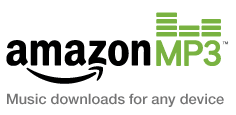 With the major labels cajoling Apple into upping the cost of the most popular tracks on iTunes, I wondered how long it would take other music download stores to follow suit. Not long it seems – less than a day in fact – with paidContent and Ars Technica reporting that Amazon, Wal-Mart, Lala and Rhapsody have followed Apple’s lead and introduced ‘variable pricing’.
With the major labels cajoling Apple into upping the cost of the most popular tracks on iTunes, I wondered how long it would take other music download stores to follow suit. Not long it seems – less than a day in fact – with paidContent and Ars Technica reporting that Amazon, Wal-Mart, Lala and Rhapsody have followed Apple’s lead and introduced ‘variable pricing’. 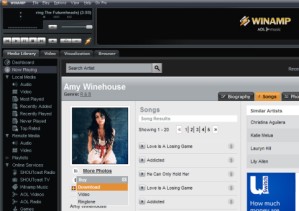
 Hoping to turn ‘supply and demand’ economics on its head, at the request of the major record labels Apple has introduced ‘variable pricing’ to the iTunes Store.
Hoping to turn ‘supply and demand’ economics on its head, at the request of the major record labels Apple has introduced ‘variable pricing’ to the iTunes Store.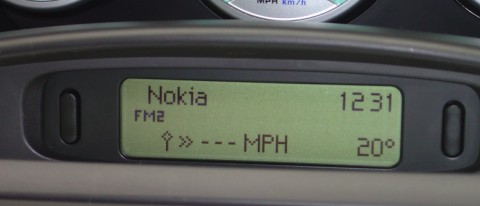
 At the Web 2.0 Expo in San Francisco this week, Palm announced that third-party developers can now apply for access to the company’s “Mojo” Software Development Kit (SDK) for the upcoming Palm Pre and webOS. Not all developers will be let in at first however – word on the street is that priority will be given to apps that take advantage of the hooks provided by webOS into the Pre’s address book, GPS and calendar – but as the SDK becomes more robust and Palm is able to scale support, access will be made more widely available.
At the Web 2.0 Expo in San Francisco this week, Palm announced that third-party developers can now apply for access to the company’s “Mojo” Software Development Kit (SDK) for the upcoming Palm Pre and webOS. Not all developers will be let in at first however – word on the street is that priority will be given to apps that take advantage of the hooks provided by webOS into the Pre’s address book, GPS and calendar – but as the SDK becomes more robust and Palm is able to scale support, access will be made more widely available. After news last week that
After news last week that 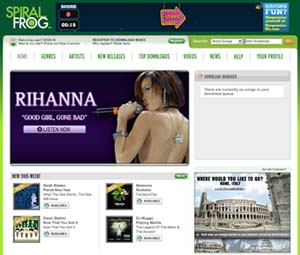 I can’t say I’m surprised but it’s sad nonetheless. Ad-supported music download service SpiralFrog appears to be no more.
I can’t say I’m surprised but it’s sad nonetheless. Ad-supported music download service SpiralFrog appears to be no more. If it wasn’t already clear who owns the customer – Apple or its mobile carrier partners –
If it wasn’t already clear who owns the customer – Apple or its mobile carrier partners – 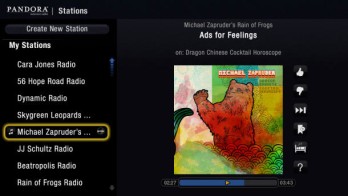
 Vodafone, which currently operates music download stores in over 20 countries, is to become the latest company to jump on the DRM-free bandwagon, announcing this week that it will soon be transitioning its music catalog away from the copy-protected WMA format to standard MP3s. Additionally, customers will be able to covert their existing Vodafone purchases to DRM-free versions at no extra charge, unlike Apple’s current iTunes arrangement where users wishing to ‘upgrade’
Vodafone, which currently operates music download stores in over 20 countries, is to become the latest company to jump on the DRM-free bandwagon, announcing this week that it will soon be transitioning its music catalog away from the copy-protected WMA format to standard MP3s. Additionally, customers will be able to covert their existing Vodafone purchases to DRM-free versions at no extra charge, unlike Apple’s current iTunes arrangement where users wishing to ‘upgrade’